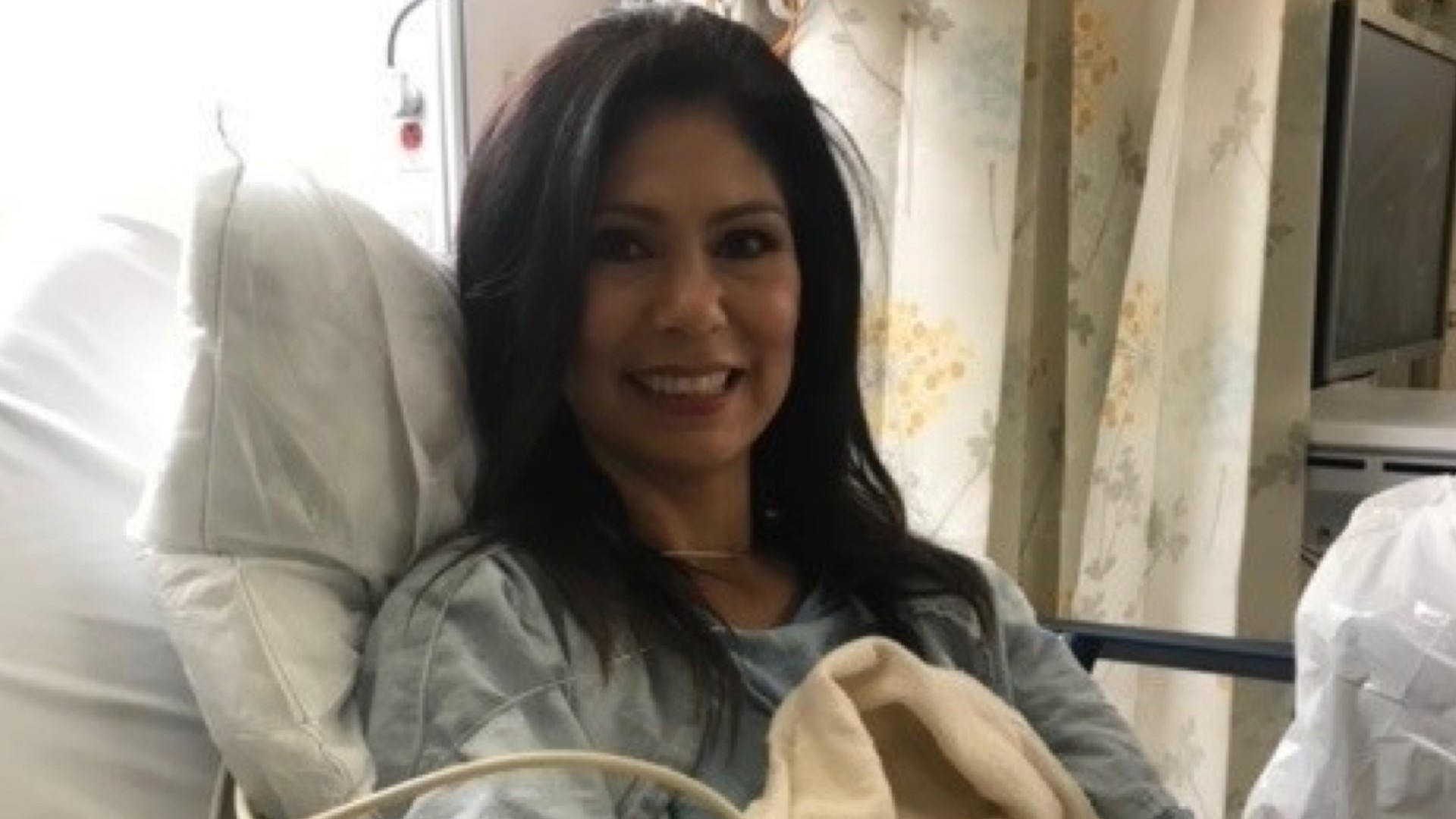STOCKTON, Calif. — Stockton teacher Teri Rivera knew something wasn't right a few years ago. When she was only 43, she started noticing blood after using the bathroom.
"I'd go to the doctors, and they would tell me all the time I would get well, 'You're really young,' 'You had five kids,' 'You probably have a hemorrhoid,' said Rivera.
It wasn't until almost seven years later her doctor suggested a colonoscopy. The exam revealed a six-centimeter polyp, which was removed and biopsied.
At 51, Rivera was diagnosed with Stage 3 colorectal cancer. She sought as second opinion at the UC Davis Comprehensive Cancer Center.
"They were on top of it. They they were there to meet my needs and to make sure that things were done properly," said Rivera.
"Colon cancer is a tumor that grows from the inner lining of your colon. We tend to often lump together, actually colorectal cancer, so from the colon or the rectum," said Dr. Erik Noren, assistant clinical professor of surgery in the Division of Colorectal Surgery at UC Davis Health
Everyone is at risk. Colorectal cancer is the third most common cancer. A new American Cancer Society study shows the number of people under 55 newly diagnosed with colorectal cancer has nearly doubled since 1995.
"The really encouraging thing about colon cancer screening is it's been demonstrated to be very effective," said Dr. Noren.
There are multiple ways to screen for colon cancer. The gold standard, probably the most common one that most people are familiar with, is through a colonoscopy.
"That's a procedure where a doctor uses a flexible endoscopic camera to look at the inside of the colon," said Dr. Noren. "They do the procedure under some sedation. So it's actually fairly comfortable."
Rivera is one of the lucky ones. Despite her stage 3 diagnosis. Radiation wasn't necessary.
Her treatment included chemotherapy and surgery. That was in 2017 and now she is cancer free.
"If your body's not functioning the way that it normally does, have it checked out. Because you don't know -- you don't know what it is that you may have," said Rivera.
For more information on colorectal cancer, click HERE.
WATCH ALSO:
ABC10: Watch, Download, Read



















